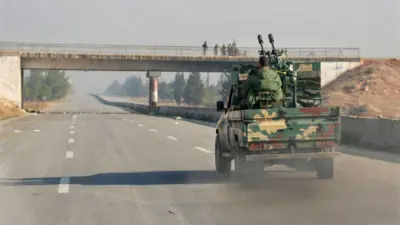We've updated our Privacy and Cookies Policy
We've made some important changes to our Privacy and Cookies Policy and we want you to know what this means for you and your data.
Changing the way Indians shop
Top Stories
India's decision to open up to the supermarket giants could revolutionise the way the country shops - some people are happy, but many fear the consequences. The ┤¾¤¾┤½├¢'s Sanjoy Majumder in Delhi looks at why it has taken so long to open up India's $450bn retail market.
Large international supermarket chains, such as Wal-Mart, Carrefour and Tesco, have opened in many countries across the world, including emerging economies such as Brazil, China and Russia.
Until now, they were not allowed to sell directly to shoppers in India - but all that is set to change.
At a farm a short distance outside the capital, Delhi, farmers are loading aubergines picked from the vast field onto a little van.
But instead of the local market, it is headed for the nearest Wal-Mart "cash and carry" or wholesale store - the only kind that exists in India at the moment.
Top Stories
These farms supply exclusively to the company, which in turn monitors and regulates the quality of the produce.
For the farmers it is a big boon as they sell directly to their buyer and earn considerably more as a result.
In the past, farmer Ved Prakash had to drive long distances to travel to the regular market.
There, he would have to deal with middlemen who in turn sold to traditional vegetable sellers, the face of India's retail market until now.
"The middlemen never guaranteed us a fair price. But now that I sell directly to Wal-Mart, their vans pick up our produce directly from our farms and give us cash on the spot.
"The money is good and it saves us time."
There are a number of Wal-Mart cash and carry stores around India, with four in the farming-belt state of Punjab alone.
It is the sheer size and scale of the store that first hits you when you enter it.
Inside a giant hall, rows and rows of shelves are stacked up to 25 feet high with an astonishing range of products - from fruit, vegetables and frozen meat to grains, spices, even clothes - just about anything you might like to buy.
At the moment, though, this is open only to businesses - offices, hotels, restaurants - and not individual consumers.
Top Stories
For elite Indians?
All that will, of course, now change, with the government's decision to allow the supermarket giants in.
But the move is not without opposition.
Economist Mohan Guruswamy of the Centre for Policy Alternatives warns that companies like Wal-Mart will serve only to elite Indians.
"You're going to cater to, at the most, 1% or 2% of the population - and for that you are going to displace a whole lot of people.
"The average Wal-Mart store will displace 11,200 people and replace them with 285 people. That's our calculation in a study that we have done," he says.
Most Indians still shop at overcrowded, chaotic local markets, with fruit and vegetables stacked on carts or on sacks placed on the ground.
The government's move to change this is aimed at not just improving the customer's experience but also because up to 40% of the produce is lost due to poor storage.
Lack of quality warehouses or enough cold storage facilities means that a lot of it is left out in the open, exposed to the elements.
But India has about 20 million small vendors who operate out of neighbourhood markets or corner shops.
The fear is that when the international supermarket chains come in, they will be wiped out.
"The entire supply chain will be badly affected, from the sellers to the truckers to the rickshaw-pullers and the loaders - all of our earnings depend on this trade," says one vegetable seller.
"We will lose everything."
Others question if prices will indeed go down.
"Everything will become very expensive and the consumer will suffer. This is how people have always shopped here. Why change it?" asks another vendor.
But with inflation rising, the government believes its gamble will work and help improve the system.
With companies such as Tesco, Wal-Mart and Carrefour all poised to enter the market, Indians may soon change the way they shop.
Top Stories
More to explore
Most read
Content is not available








